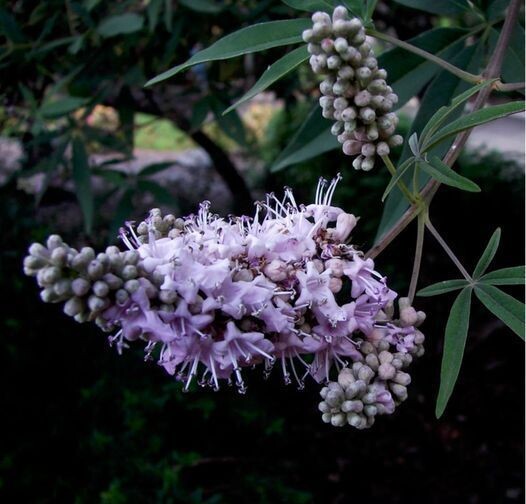Agnus Castus Berry (Vitex agnus-castus)
Available either as a dried herb or herbal tincture.
Please note this is a nutritional, functional horse food supplement and not veterinary medicine.
See Dr Kellon's Horse Sense - 'Nutrition is not 'Alternative' Therapy.
Tincture
Our human-grade, certified organic tinctures give you a ready-to-absorb potent source of phytonutrients at the highest-strength available, for immediate absorption straight into the bloodstream and to the body’s cells.
100% certified organic pure tincture: Vitex agnus-castus (Chaste Tree) Berry, Distilled /Decocted 1:3 25%, Wild harvested
Feed Guide
- Horse - 30-40ml / Pony - 15-20ml, daily in feed.
- Always shake the bottle to disperse any sediment.
- 3-year shelf-life.
Dried Herb
Certified organic dried herb:
Vitex agnus-castus (Chaste Tree) Berry, Organic Cultivated, Origin Turkey
Feed Guide
- 5g/100kg bodyweight per day, thus for an average 500kg horse add 25g daily to feed.
- 1-year shelf-life.
Functional Nutritional Value
Constituents: Iridoid glycosides, flavenoids, essential oil.
NB. Our range of botanicals are all grown, harvested and dried without the use of agri-chemicals, non-irradiated and GMO free - see our Quality page for Quality Management & Certification Documents. Laboratory tested for identification and compliance to the British and European Pharmacopoeia standards, and are human grade.
Please be aware that if you're purchasing our dried botanicals for human use, our dried range is cut to appropriate sizes for feeding to horses.
More ...
This tiny little seed, native to the Mediterranean and a member of the verbena family ( Verbenaceae ), was originally used to promote chastity in monks during the Middle Ages. Why the plant gained this reputation for chastity is unknown, but Christopher Hobbs notes that it may have been because the herb was seen as drying and hot, and may dry up the 'seed' in those with excess heat, but was also thought to act as a potential aphrodisiac in 'cold' people through its warming action.
Anyway, ancient Greek physician Dioscorides described agnus castus as " warming and astringent with galactagogue properties "; he suggested its use to " expel the menstrual flow ", as in a bath for hip and uterine inflammation and disorders. Cut to the 1700s in England, and it was now being used for digestive problems.
Its use today in menstrual disorders is seen as far back as 2,500 years ago courtesy of Hippocrates, who wrote, “ If blood flows from the womb let the woman drink dark wine in which the leaves of the chaste tree have been steeped
”. It's also historically been used to address everything from epilepsy to chastity and oddly, spleen enlargement, while today in humans at least it's used primarily to regulate the menstrual cycle, address dysmenorrhea and premenstrual syndrome (PMS).
It's probably best known as a hormone balancer, as in an indirect normaliser of progesterone
and estrogen
, as a galactagogue (a food that's thought to boost production of breast milk), and to support and enhance fertility. It's also thought to contain dopaminergic compounds (related to the neurotransmitter, dopamine) so it may cheer us up as well!
Modern herbalists today use it for PMS, menstrual irregularities, and pain, hence why it's so beneficial for our mares who struggle with their seasons, but its effects rely on consistent long-term use. It's hormone balancing properties also have a direct relationship with the pituitary gland, which makes it very useful for our Cushing's horses as well.
We blend it in our MellowMare and CushTonic Mk.1.
Safety
- No known safety issues.
The content in this website is intended as a sharing of knowledge and information from our own research over many years, together with clients' experiences and our own personal experience over 5-decades of horse care. This website is about enlightening towards a more naturopathic approach to support a healthy lifestyle for our horses. Any information contained within is not intended as a substitute or replacement of veterinary or other professional advice, and we would encourage everyone to make their own equine healthcare decisions based upon their own research.
* Trading Standards EC Feed Hygiene Regulation (183/2005), Registration No. GB280/4203
* HACCP certified facility (an international standard that ensures we meet food safety standards)
* Registered in England. Company Number 11075894, Reg'd Office: Unit 4 Rookery Farm, Radstock BA3 4UL
* VAT No. GB 310214964


